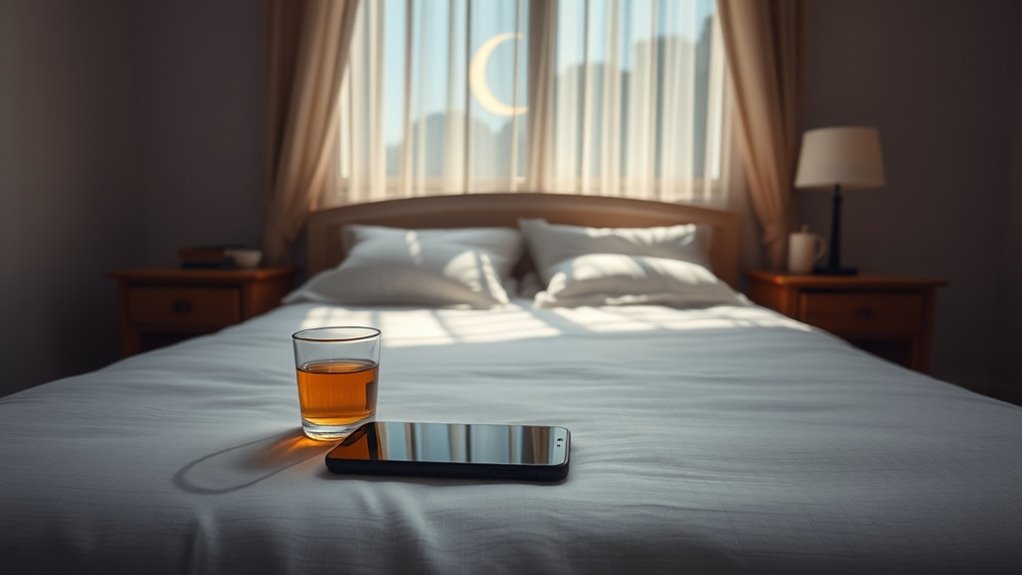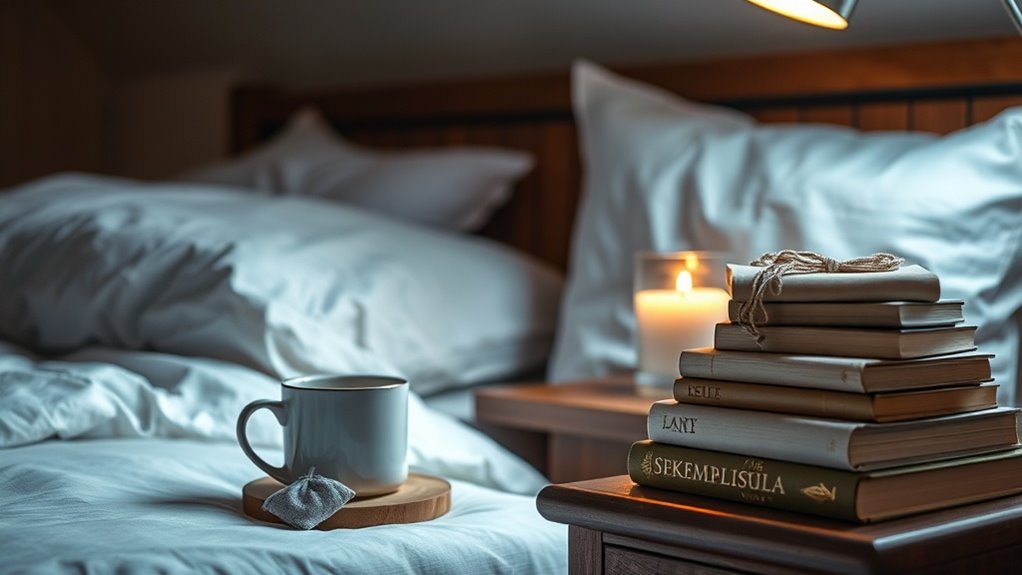What Happens When You Breathe Like This Before Bed
The Science of Breathing and Sleep
When you think about improving your sleep quality, the science of breathing often plays a crucial role.
Sleep breathing directly impacts how well you fall asleep and stay asleep. Proper techniques can enhance oxygen flow, reduce stress, and promote relaxation. Soothing breathing exercises can be a powerful tool to help you unwind and prepare your body for restful sleep.
Understanding this relationship helps you leverage your breath to foster a peaceful sleep environment, ultimately elevating your overall sleep quality.
Techniques for Relaxing Breath Before Bed
Utilizing effective breathing techniques can significantly enhance your ability to relax before sleep. Try these methods to calm your mind and body:
| Technique | Description | When to Use |
|---|---|---|
| Diaphragmatic Breathing | Inhale deeply through your nose, expanding your diaphragm. | Before bed |
| 4-7-8 Breathing | Inhale for 4 seconds, hold for 7, exhale for 8. | Nightly routine |
| Box Breathing | Inhale for 4, hold for 4, exhale for 4, hold for 4. | When anxious |
Incorporating these techniques into your evening routine can help you achieve stress relief through breathing, allowing for a more peaceful night’s sleep.
Benefits of Deep Breathing for Sleep Quality
Have you ever wondered how deep breathing can transform your sleep quality?
By engaging in deep breathing exercises, you activate your body’s relaxation response, lowering heart rate and cortisol levels. This process helps quiet racing thoughts, encouraging a smoother transition to sleep.
Additionally, improved oxygen flow enhances brain function, supporting better sleep cycles, ultimately leading to more restorative rest and increased overall well-being. In fact, deep breathing techniques can significantly reduce stress levels, making it easier to embrace a tranquil mindset before bedtime.
Implementing Breathing Practices Into Your Nighttime Routine
Incorporating breathing practices into your nighttime routine can significantly enhance your ability to unwind and prepare for sleep.
Consider these methods:
- Find a quiet, comfortable space.
- Practice deep, slow breaths.
- Focus on counting your breaths.
- Use guided breathing apps.
- Set a specific time for your routine.
These techniques can help calm your mind and body, leading to a more restful night. Additionally, practicing mindfulness techniques can improve your overall well-being and enhance the effects of your breathing exercises.
Common Mistakes to Avoid When Breathing Before Sleep
While implementing breathing practices can greatly improve your sleep routine, it’s important to steer clear of common pitfalls that may undermine their effectiveness. Avoid shallow breathing, which creates tension. Don’t rush the process; take your time to relax. Lastly, ensure you’re in a comfortable position for optimal relaxation. Incorporating breathing exercises can further enhance your ability to unwind before sleep.
| Mistake | Impact | Solution |
|---|---|---|
| Shallow Breathing | Increased tension | Focus on deep breaths |
| Rushing the Process | Increased anxiety | Take your time to relax |
| Uncomfortable Position | Reduced effectiveness | Find a comfortable spot |
Real-Life Experiences: Success Stories of Better Sleep
Many people have transformed their sleep quality through simple breathing techniques.
By incorporating these methods, you might find enhanced relaxation and a deeper, more restorative sleep.
These success stories highlight how focused breathing can make a significant impact on your nightly rest.
Improved Sleep Quality
Breathing exercises before bed often transform restless nights into peaceful slumber for many individuals.
Here’s what they’ve experienced:
- Decreased time taking to fall asleep
- Fewer nighttime awakenings
- Enhanced feelings of restfulness upon waking
- Improved mood and focus during the day
- Greater overall satisfaction with sleep quality
These real-life success stories highlight the potential of simple breathing techniques to improve your sleep.
Enhanced Relaxation Techniques
As individuals discover the power of enhanced relaxation techniques, their sleep quality often improves dramatically.
You might find that practices like deep breathing, progressive muscle relaxation, and guided imagery not only calm your mind but also prepare your body for restful sleep.
Incorporating these methods into your nightly routine can lead to tangible benefits, including reduced anxiety and more rejuvenating slumber.





